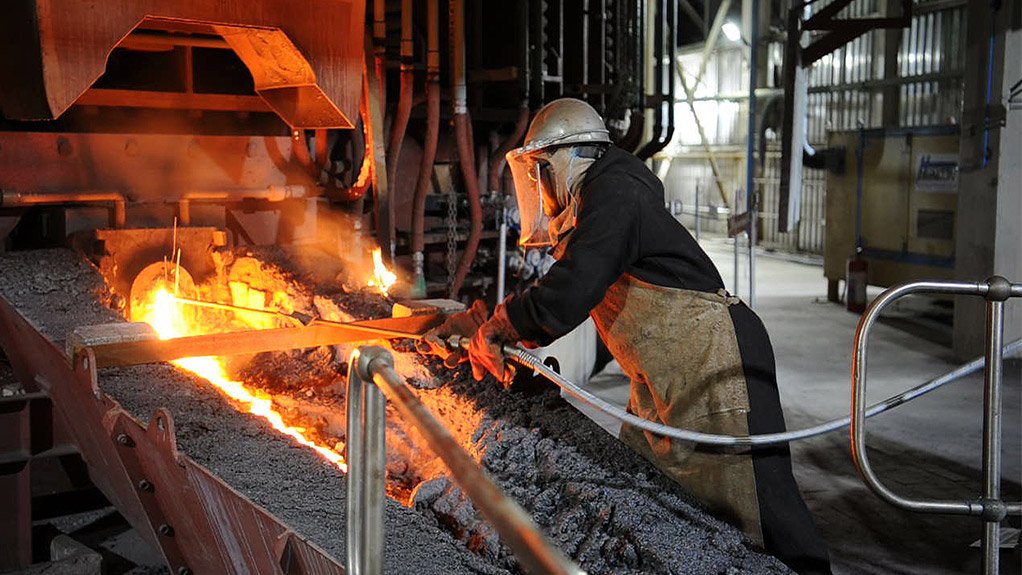South African business formations make joint appeal for carbon-tax relief
Several organised business formations have outlined six recommendations in a joint position statement on carbon tax, which they argue will improve the carbon tax proposals in the Taxation Laws Amendment Bill and “avert unintended consequences”.
Released by the Energy Council of South Africa, Minerals Council South Africa, Business Leadership South Africa, Business Unity South Africa, the South African Petroleum Industry Association and the Energy Intensive Users Group, the joint statement stresses that organised business is supportive of carbon pricing, including the carbon tax, to help decarbonise the economy and facilitate a just transition.
However, the statement argues that the “carbon tax should be implemented at a pace and rate aligned to a developing economy that takes into account the challenges in South Africa including low economic growth, energy security and high unemployment”.
The organisations recommend that yearly carbon tax increases be based on the prevailing consumer price index plus two per cent structure until at least 2030, rather than implementing the National Treasury’s proposal of increasing the carbon tax rate for the 2023 to 2025 tax periods by a minimum of $1/t carbon dioxide-equivalent (CO2e) and increasing thereafter to $20/tCO2e in 2026 and at least to $30/tCO2e in 2030.
During Phase 1 of the implementation period, South Africa’s headline carbon tax base rate was set at R120/tCO2e and, in February, Finance Minister Enoch Godongwana announced that the first phase would be extended for three years.
He also announced that the carbon tax rate had been increased from R134/t to R144/t, and that the carbon tax rate would be progressively increased every year to reach $20/t by 2026 and $30/t in 2030.
“We welcome the extension of Phase 1 and recognise the need to increase the rate of the standalone carbon tax to ensure that South Africa remains protected against border tax adjustments and can attract financing to enable the just transition,” the organised business grouping assert.
However, they add that the South African economy cannot accommodate the steepness of the carbon tax rate increase in the proposed timeframe currently envisaged.
The organised business formations acknowledge that carbon prices are high in other regions, including the European Union and Canada, but stress that these are ameliorated by various allowances, such as free allocations, indirect compensation, subsidies, ringfencing of carbon tax revenues, and funding support for innovation, technology, research and development.
“For South Africa, such support measures/incentives are currently lacking, and we propose that these be explored and introduced in support of decarbonisation.”
The organisations have, thus, called for the enacted allowances to be retained to 2030 and for other supporting policies and measures to be introduced to encourage decarbonisation and growth of low-carbon sectors.
“We are concerned that the 2022 draft Bill does not retain the allowances to mitigate the impact of the rapidly increasing carbon tax proposals.
“To date, these allowances have been instrumental in assisting business sectors requiring support, such as the mining, petrochemical, steel, cement, and other hard-to-abate sectors, from detrimental financial impacts.
“There is therefore a need for greater policy certainty around the retention of allowances,” the joint statement reads.
During the first phase, several tax-free allowances and offsets have been included, which have resulted in a materially lower effective tax rate.
In a recent opinion article published on Daily Maverick, Just Share director Robyn Hugo warned that with such extensive allowances, even a much higher tax rate would be ineffective in driving the change required to ensure urgent decarbonisation.
The third recommendation contained in the statement is for the implementation timelines to be revised on the basis that “business cannot afford the proposed tax rates and simultaneously mobilise the capital needed to mitigate greenhouse gas emissions and grow or invest in new low carbon products and services”.
The introduction of a carbon tax of $20/t by 2026 and $30/t by 2030, together with the potential removal of the tax free allowances, will result in high costs that cannot be absorbed over the period, the formation argues.
“We propose that a higher carbon price should only be considered post-2035, the exact date of which should be informed by a more detailed analysis of viable mitigation and socio-economic considerations.”
The statement also calls for a “bottom-up analysis for hard-to-abate and vulnerable sectors and that the analysis should consider border tax adjustments”.
Fifthly, business proposes that a detailed study be undertaken to evaluate the financial impacts of a carbon tax pass-through from electricity generators and other industries that are not able to pass through a carbon tax to customers.
The final recommendation relates to “enabling a just transition”, which the formations suggests will require that space be created for industry to transition to low-carbon energy, while facilitating a transition of their suppliers and workers, including training and reskilling.
They also propose that the sequestration deduction be expanded beyond the paper and pulp industry to enable companies with land to increase biodiversity and thereby improve sequestration potential.
“It would furthermore contribute to employment creation in the agriculture sector, allowing companies to transition fossil fuel-based jobs into the agricultural sector.”
Article Enquiry
Email Article
Save Article
Feedback
To advertise email advertising@creamermedia.co.za or click here
Announcements
What's On
Subscribe to improve your user experience...
Option 1 (equivalent of R125 a month):
Receive a weekly copy of Creamer Media's Engineering News & Mining Weekly magazine
(print copy for those in South Africa and e-magazine for those outside of South Africa)
Receive daily email newsletters
Access to full search results
Access archive of magazine back copies
Access to Projects in Progress
Access to ONE Research Report of your choice in PDF format
Option 2 (equivalent of R375 a month):
All benefits from Option 1
PLUS
Access to Creamer Media's Research Channel Africa for ALL Research Reports, in PDF format, on various industrial and mining sectors
including Electricity; Water; Energy Transition; Hydrogen; Roads, Rail and Ports; Coal; Gold; Platinum; Battery Metals; etc.
Already a subscriber?
Forgotten your password?
Receive weekly copy of Creamer Media's Engineering News & Mining Weekly magazine (print copy for those in South Africa and e-magazine for those outside of South Africa)
➕
Recieve daily email newsletters
➕
Access to full search results
➕
Access archive of magazine back copies
➕
Access to Projects in Progress
➕
Access to ONE Research Report of your choice in PDF format
RESEARCH CHANNEL AFRICA
R4500 (equivalent of R375 a month)
SUBSCRIBEAll benefits from Option 1
➕
Access to Creamer Media's Research Channel Africa for ALL Research Reports on various industrial and mining sectors, in PDF format, including on:
Electricity
➕
Water
➕
Energy Transition
➕
Hydrogen
➕
Roads, Rail and Ports
➕
Coal
➕
Gold
➕
Platinum
➕
Battery Metals
➕
etc.
Receive all benefits from Option 1 or Option 2 delivered to numerous people at your company
➕
Multiple User names and Passwords for simultaneous log-ins
➕
Intranet integration access to all in your organisation





















